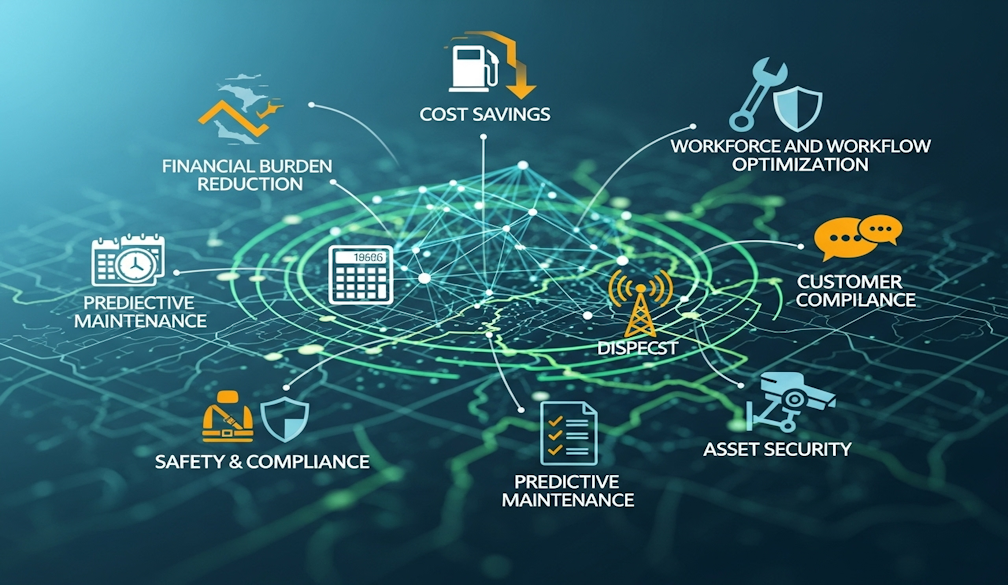Telematics: Driving Business Efficiency

Telematics, the clever combination of telecommunications and information technology, has evolved from simple vehicle tracking to become an indispensable tool for modern business efficiency. For companies operating fleets, mobile workforces, or valuable assets, telematics systems provide granular, real-time data that enables smarter decisions, drastically reduces operating costs, and ensures compliance. You can discover leading solutions and more information at radius.com.
Reducing the Financial Burden
The most immediate benefit of adopting telematics is the measurable impact on a company's financial health, primarily by tackling fuel and maintenance expenses.
- Fuel Savings via Route Optimisation: Telematics uses GPS tracking and live traffic updates to identify and enforce the most economical routes. By eliminating unnecessary mileage, avoiding costly congestion, and eradicating detours, businesses see tangible fuel cost reductions, typically between 10% and 20%.
- Controlling Wasteful Idling: Excessive engine idling is a major drain on resources. The system automatically monitors prolonged stationary periods with the engine running, allowing managers to implement policies and driver coaching to stamp out this costly habit.
- Predictive Maintenance: Vehicle breakdowns lead to crippling downtime and high emergency repair bills. Telematics connects to the vehicle's onboard diagnostics to monitor engine health. It flags potential faults or required service intervals before they become critical, ensuring assets are maintained proactively and lifespan is extended.
Optimising Workforce and Workflow
Beyond the vehicle itself, telematics dramatically improves the efficiency of mobile teams and streamlines administrative tasks.
- Smarter Dispatching: With real-time vehicle location visibility, managers can instantly allocate new jobs to the nearest or most suitable driver or engineer. This cuts down on travel time, allowing staff to complete more jobs per day and significantly improving service delivery times.
- Reduced Administration: Telematics automates complex data collection, such as mileage logging and driver work hours. This vastly reduces the administrative burden, freeing up management and staff from time-consuming paperwork.
- Enhanced Customer Service: Providing accurate Estimated Times of Arrival (ETAs), based on a vehicle's precise location and traffic conditions, is a major benefit. This transparency manages customer expectations and enhances overall satisfaction and trust.
Enhancing Safety and Compliance
Improved efficiency is intrinsically linked to improved safety. Telematics provides the objective data required to build a responsible and compliant operational culture.
- Driver Behaviour Coaching: The system captures aggressive driving habits—including harsh braking, rapid acceleration, and speeding. This objective data allows for targeted training programmes, which reduces the likelihood of incidents and contributes to lower long-term insurance premiums.
- Compliance Assurance: For industries with strict regulatory requirements (such as the Chain of Responsibility in transport), telematics provides auditable records of driver work hours and vehicle status. This ensures the business is meeting its legal obligations and mitigating the risk of regulatory fines.
- Asset Security:
By transforming raw data into actionable intelligence, telematics systems are proving to be the smartest investment for any business seeking a definitive competitive advantage through efficiency, safety, and cost control.

























